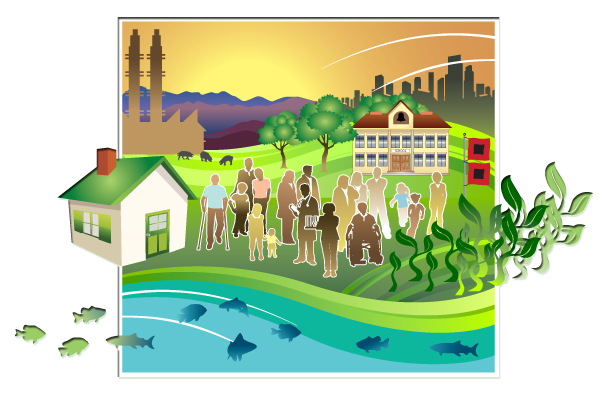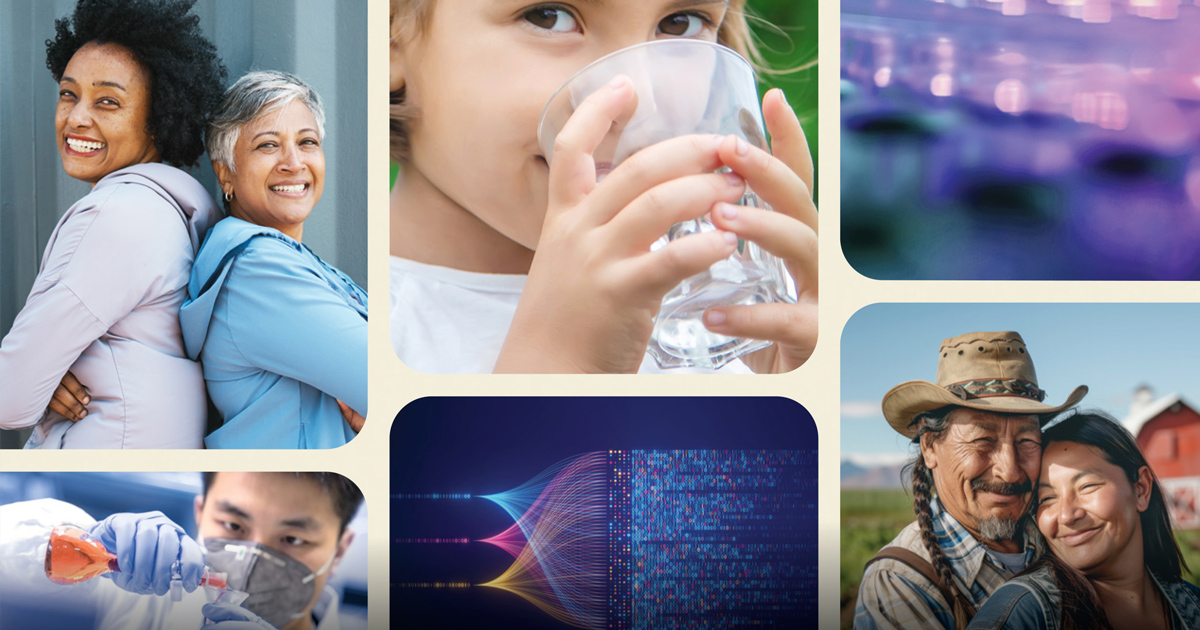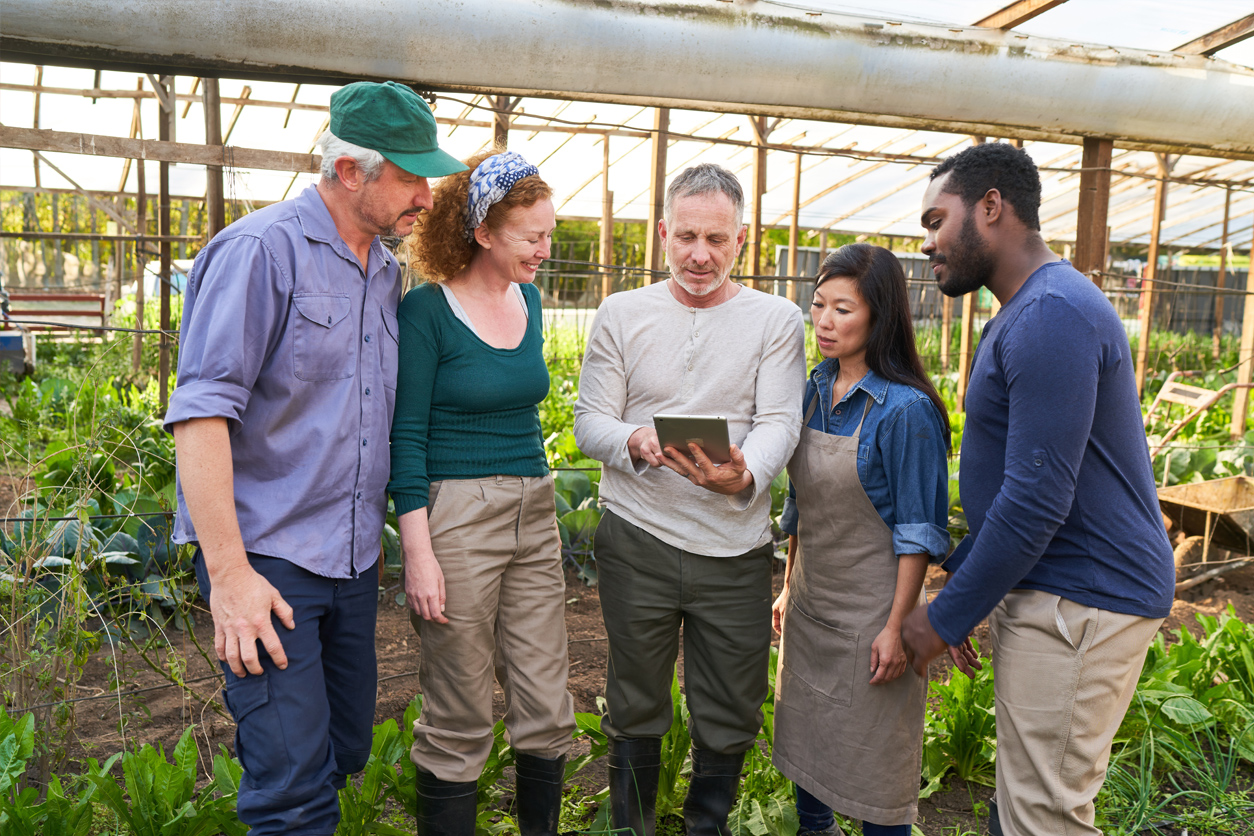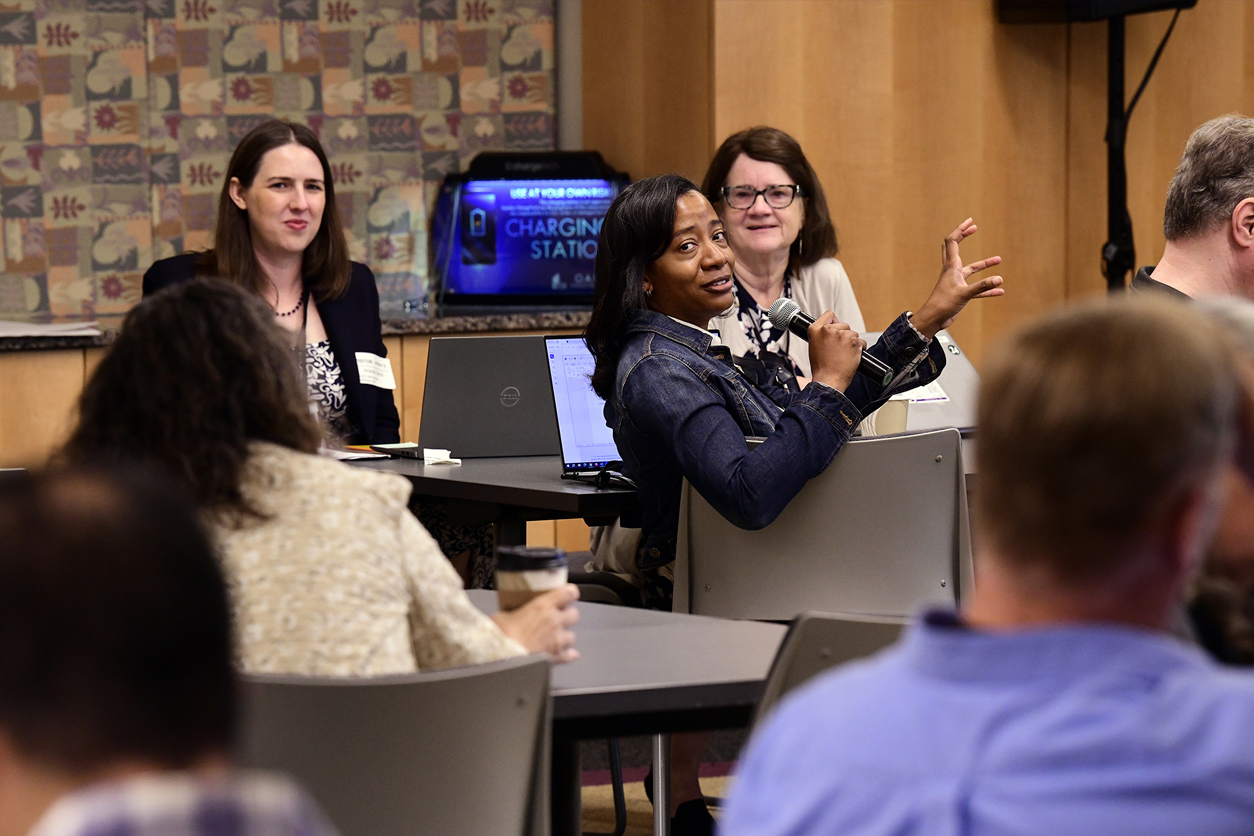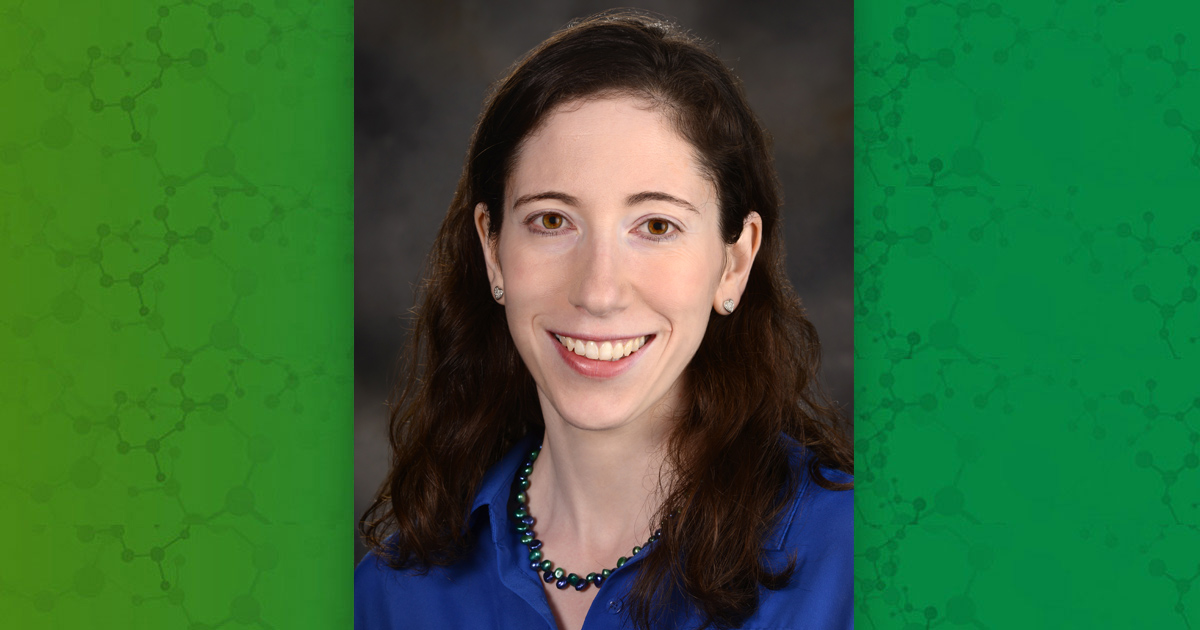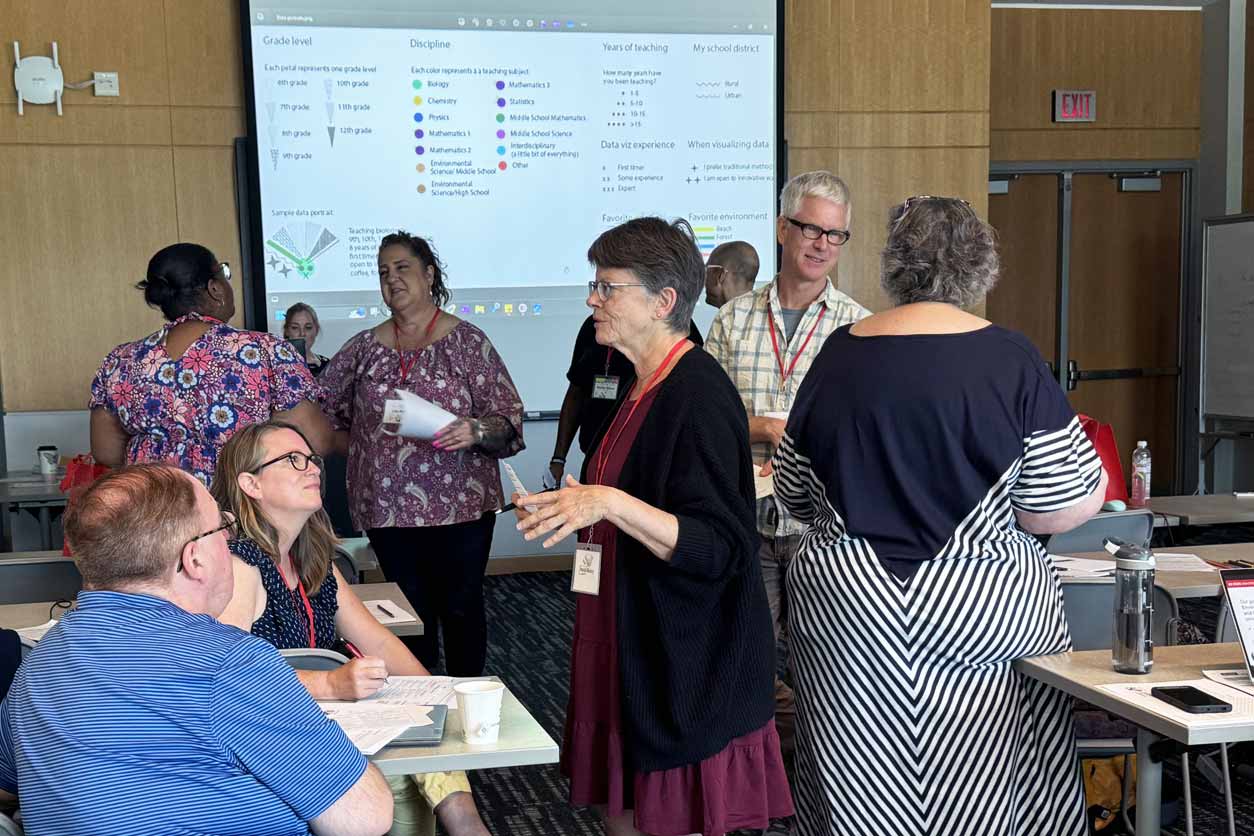Toxin Testing Program by Alaska Natives Promotes Safer Shellfish Consumption
A shellfish toxin testing program launched by tribes in Southeast Alaska fills a gap in the state. This testing provides community members with timely information on the safety of consuming shellfish harvested from particular areas.
An NIEHS-supported community-academic partnership, comprised of Alaska tribal governments and academic researchers with the University of Alabama at Birmingham and the University of California, San Francisco, found that social factors, such as insufficient infrastructure, contribute to barriers in testing. Other factors, such as perceived risks from climate change, may alter how tribal citizens harvest shellfish and may lead to confusion about results. The research team examined the challenges and successes of the testing program by interviewing staff. Their findings are described in a March 2024 paper.
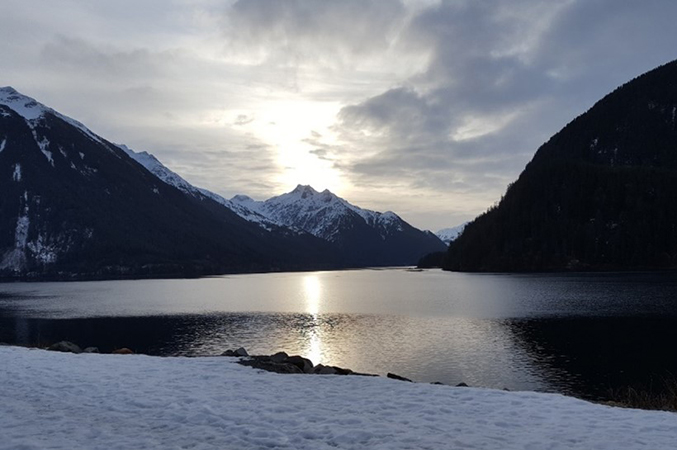
View of a Southeast Alaska landscape. (Photo courtesy of Matthew Gribble)
Tribal Partnership for Shellfish Testing
Tribal citizens in Southeast Alaska have engaged in subsistence shellfish harvesting for generations, and community gatherings and other cultural traditions are tied to such harvesting. But potential harm to these people may arise because some shellfish can be contaminated with toxins that lead to paralytic shellfish poisoning (PSP). Alaska Natives make up 16% of the state’s population but accounted for 53% of PSP cases reported between 1993 and 2021. As Alaska does not support a toxin testing program for subsistence shellfish harvesting, tribal governments collaborated to form a program to fill this gap.
Southeast Alaska Tribal Ocean Research (SEATOR), a network of tribal partners, collects and tests shellfish from harvesting sites and returns results to the community. SEATOR also encourages individuals to send samples of their shellfish harvest for testing. Following the success of this project, in 2024 the Sitka Tribe of Alaska received an NIEHS Oceans and Human Health Center grant to fund efforts to address toxin exposure.
“The Tribes have put together a really robust public health oceanography research program, while also providing a necessary food safety testing service for harvest communities in the region,” reflected Matthew Gribble, Ph.D., Associate Chief for Research in Occupational, Environmental and Climate Medicine at the University of California, San Francisco and lead academic researcher on the study.
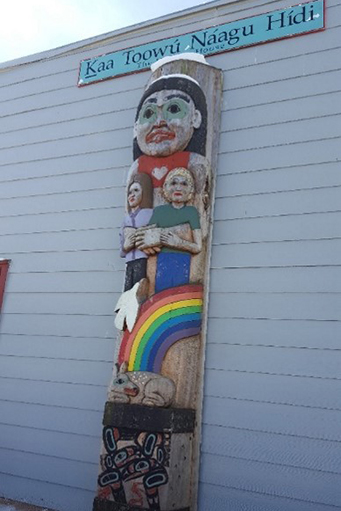
Totem pole at the Sitka Tribe of Alaska Environmental Research Laboratory where toxins are tested. (Photo courtesy of Matthew Gribble)
The research team worked with SEATOR to interview 27 environmental managers and laboratory staff responsible for the shellfish testing program. The researchers asked interviewees about their own and the community’s thoughts on the shellfish testing program, including perceived risks of toxins, how well the program had been meeting testing needs, and what they thought about risk communication. Interviews also examined perceived barriers to testing and any factors that helped the program function well.
Interviewees reflected on the significance of shellfish harvesting for tribal communities. They described the benefit of having a local food source when access to grocery stores is limited. They also stated that harvesting ties people to traditions and helps adults share knowledge with younger generations.
One interviewee quoted in the article said, “Just gathering and enjoying, laughing, and making it an event. That’s another great benefit. And that also falls into the cultural practice of sharing. Sharing the knowledge, teaching the young ones this process that’s been passed down to them.”
Interviewees thought the community found the testing program to be critical for their health and safety. Additionally, over half of interviewees thought that fears of PSP kept community members from harvesting shellfish. Interviewees described the value of gaining the community’s trust and clearly communicating risks of PSP from shellfish in a way that does not discourage shellfish harvesting altogether.
Regarding barriers to testing, interviewees stated that the remote locations of harvesting sites were a logistical challenge, both for accessing the sites and sending samples to get tested from those sites. Historical disinvestment in tribal and rural communities has resulted in limited infrastructure such as roads for accessing remote areas.
Finally, interviewees added that climate change effects on water temperature is expanding which areas in Southeast Alaska may be at risk for PSP from shellfish. Climate change is also lengthening the time over which areas may experience harmful algal blooms. Because these changing patterns do not align with historical tribal knowledge of where and when it is best to harvest shellfish, the changes increase the risk of tribal members getting PSP.
“We learned that despite logistical challenges, the community believes the shellfish testing program is beneficial,” added Gribble. “This study also importantly brought to light nuances in the community’s relationship to shellfish harvesting that may help inform future conversations in the region about marine resource management and public health, particularly as climate change may alter risks of PSP.”
NIH Recording of Talk on Community-Centered Research Design Now Available
The recording of the NIH Community Engagement Alliance April talk on community-centered research is now available. Expert speakers talked about strategies for researchers to engage in participatory research processes with community members and organizations. They covered various aspects of research, such as study design, engagement planning, and partnership structures. For example, speakers encouraged researchers to plan early in the research process how and where they plan to disseminate research findings, rather than leaving that to the end of the project. Speakers also provided a checklist for researchers in building a partnership, which included items such as getting to know all partners’ strengths and weaknesses, appreciating the priorities of each member of the partnership, and identifying areas of mistrust. The talk was part of the Community Engagement Alliance Consultative Resource Speaker Series, which focuses on inclusive participation in research. The Community Engagement Alliance Consultative Resource provides consultations to NIH-funded research teams that want to apply community engagement principles to their research.
NIEHS Launches Platform to Advance Patient-Centered Outcomes Research
Studying the effects of external, place-based environmental exposures on human health just got a little easier with NIEHS’s Climate and Health Outcomes Research Data Systems (CHORDS). Place-based exposures include those from pollutants, natural phenomena such as heat, extreme events such as wildfires and drought, and neighborhood factors such as crime and access to green space. CHORDS is directed at improving patient-centered outcomes research, which means it focuses on supporting researchers in generating evidence about the outcomes and effectiveness of interventions to support informed decisions by patients, caregivers, health care providers, and policymakers. CHORDS provides a climate change and health glossary, a catalog of data resources searchable by keyword, data sets, use cases, and a literature portal.
Survey Reveals Knowledge Gap About Wildfire Smoke Exposure Among Pediatric Pulmonary Providers
Given children’s unique susceptibility to the health risks of wildfire smoke exposure, NIEHS-funded researchers evaluated the experience and confidence of pediatric pulmonary providers in discussing health risks and prevention strategies related to wildfire smoke. The researchers conducted the survey among providers in Washington, one of the states most affected by wildfire smoke, to inform strategies to address knowledge gaps. They found most providers had recently cared for children affected by wildfire smoke and believe it is important to address the issue with their patients. Most providers indicated they were confident in understanding the health impact of wildfire smoke on children and in identifying patients at higher risk for negative health effects of wildfire smoke exposure. However, few pediatric pulmonary providers had received formal instruction about wildfire smoke or knew where to look for reliable guidance to manage exposure. The study’s authors suggest pediatric-specific sources, such as the Pediatric Environmental Health Specialty Units’ Wildfire Smoke Factsheet, and other resources for providers to fill these knowledge gaps.

PEPH Environmental Health Chat Podcast Series
Reducing Pesticide Use in Child Care Centers
PEPH Environmental Health Chat Podcast Series
Reducing Pesticide Use in Child Care Centers
Pesticides may be used in day care centers to protect children from exposure to allergens from pests, such as rodents and cockroaches. However, improper use of pesticides can expose children to harmful chemicals. In the latest PEPH podcast, Abbey Alkon, Ph.D., talks about her research on reducing pesticide exposures in child care centers. She also mentions how to educate child care facility staff on integrated pest management, a method for using fewer pesticides by preventing infestations and monitoring for pests.
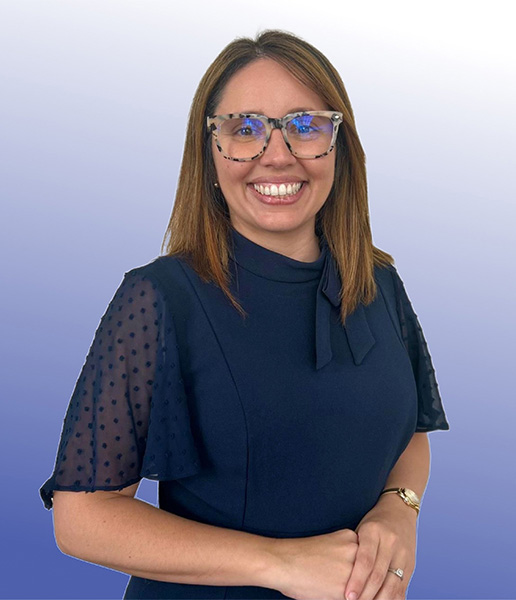
PEPH Grantee Highlight
Nancy Cardona-Cordero, Dr.P.H.
With experience on several NIEHS-funded projects using community-engaged research to address how chemical exposures affect health outcomes, Nancy Cardona-Cordero, DrPH, has built a career that has a strong impact on community members. She was a trainee with the Northeastern University’s Puerto Rico Testsite for Exploring Contamination Threats Puerto Rico Testsite for Exploring Contamination Threats Superfund Research Program (SRP) Center at which she gained research experience working on endocrine disrupting chemicals. During her training, Cardona-Cordero received the K.C. Donnelly Externship Award, allowing her to work at the University of Arizona SRP Center on a community-engaged research project that reports back findings on chemicals found in water, soil, and plants. Currently, Cardona-Cordero is an investigator at the University of Puerto Rico Comprehensive Cancer Center where she works closely with the NIEHS-funded Caribbean Climate Change Adaptation, Cancer, and Health Disparities Research Center. She and her team surveyed cancer patients after Hurricane Maria to better understand the mental health issues and physical effects hurricane survivors experience. This work is informing an update to Puerto Rico’s Comprehensive Cancer Control Plan, a document produced by a community-based coalition to establish and implement strategies to reduce cancer risk.
Funding Opportunities
Environmental and Climate Justice Community Change Grants Program
The U.S. Environmental Protection Agency is accepting applications for its Environmental and Climate Justice Community Change Grants program. The program provides Inflation Reduction Act funds in environmental and climate justice activities to benefit disadvantaged communities through projects that reduce pollution, increase community climate resilience, and build community capacity to address environmental and climate justice challenges. These place-based investments will be focused on community-driven initiatives to be responsive to community and stakeholder input. The entities eligible to apply under this opportunity are:
- A partnership between two community-based nonprofit organizations.
- A partnership between a community-based nonprofit organization and one of the following:
- A federally recognized tribe.
- A local government.
- An institution of higher education.
Other organizations and entities may be able to participate and be involved in the Community Change Grants projects as collaborating subrecipients and/or procurement contractors selected in compliance with competition requirements. EPA is accepting applications on a rolling basis; therefore, interested applicants are encouraged to apply early. To apply for this opportunity, see the announcement on Grants.gov.
Deadline: November 21, 2024
NIH Support for Conferences and Scientific Meetings (Parent R13 Clinical Trial Not Allowed)
Supports high-quality scientific conferences that are relevant to NIH's mission and to public health. A conference is defined as a symposium, seminar, workshop, or any other organized and formal meeting, whether conducted face-to-face or via the internet, where individuals meet for the primary purpose of exchanging technical information and views or exploring or clarifying a defined subject, problem, or area of knowledge, whether or not a published report results from such meeting. NIH encourages conference grant applicants to enhance diversity by increasing the participation of individuals from diverse backgrounds, including those from underrepresented groups, in the planning, implementation, and participation in the proposed conference. Eligible organizations include higher education institutions, nonprofits, for-profit organizations, local government (including Indian/Native American Tribal Governments), federal government, and other organizations such as faith-based or community-based organizations.
Deadline: December 12, 2024
PHS 2024-2 Omnibus Solicitation of the NIH, CDC, and FDA for Small Business Innovation Research Grant Applications (Parent SBIR [R43/R44] Clinical Trial Not Allowed)
Invites eligible United States small business concerns to submit Small Business Innovation Research (SBIR) Phase I, Phase II, Direct to Phase II (NIH Only), Fast-Track (NIH only), and Phase IIB (NIH only) grant applications. The SBIR/STTR Program Descriptions and Research Topics for NIH, CDC, and FDA represent scientific program areas that may be of interest to applicant small businesses in the development of projects that have potential for commercialization. SBIR applications that propose clinical trial(s) should be submitted to PA-24-246. Small business applicants interested in submitting an STTR grant application should submit to PA-24-247 or PAR-24-248.
Deadlines: January 5, 2025; April 5, 2025
Notice of Special Interest (NOSI): Innovative Technologies for Research on Climate Change and Human Health
This NOSI encourages grant applications from small business concerns to develop commercializable tools, resources, and approaches to capture the effects of climate change and the associated impacts of extreme weather events on human health, and to support adaptation or mitigation strategies to minimize health hazards and impacts from climate change. Technologies may include new approaches for detecting climate change-associated exposures, including temperature and air quality, training tools on climate change and mitigation strategies for patients with underlying health conditions, intervention approaches for reducing contaminants in water or in indoor air, modeling and prediction tools for climate change-related weather events and related health effects, and technologies for delivery of health care, including mental health services to communities during extreme weather events. This NOSI supports NIEHS’ Climate Change and Health Initiative. Applications are to be submitted through the SBIR (PA-24-245 or PA-24-246) or STTR (PA-24-247 or PAR-24-248) solicitations.
Deadlines: January 5, 2025; April 5, 2025
Notice of Special Interest (NOSI): Research on the Health of Women of Underrepresented, Underserved, and Underreported (U3) Populations (Admin Supp Clinical Trial Optional)
Encourages rigorous, collaborative, interdisciplinary research on the differential risk, treatment outcomes, and morbidity experienced by populations of women who are underrepresented, underserved, and underreported in biomedical research across the lifespan. Thoughtful incorporation of intersectionality and culturally and contextually relevant approaches into research by applying the National Institute on Minority Health and Health Disparities (NIMHD) Minority Health and Health Disparities Research Framework to meet group- and population-level needs is encouraged. Partnership between early career and independent investigators is encouraged to strengthen and accelerate multidisciplinary research in this space.
Deadline: January 22, 2025
Maximizing Opportunities for Scientific and Academic Independent Careers Postdoctoral Career Transition Award to Promote Diversity (K99/R00 Independent Clinical Trial Not Allowed)
Supports a cohort of early career, independent investigators from diverse backgrounds (for example, individuals from underrepresented groups) conducting research in NIH mission areas. The program has two components: an individual career transition award for postdoctoral scholars (K99/R00) and a research education cooperative agreement (UE5) awarded to organizations to provide these scholars with additional mentoring, networking, and professional development activities to support their transition to and success in independent, tenure-track or equivalent research-intensive faculty careers. This Notice of Funding Opportunity (NOFO) is designed specifically to support candidates proposing research that does not involve leading an independent clinical trial, a clinical trial feasibility study, or an ancillary clinical trial. Candidates seeking support through this NOFO are permitted to propose a research experience in a clinical trial led by a mentor or co-mentor. Candidates proposing a clinical trial or an ancillary clinical trial as lead investigator, should work with their institutions to apply to the companion NOFO PAR-24-226. Candidates proposing to work on basic experimental studies with humans should apply to PAR-24-227.
Deadlines: February 12, 2025; June 12, 2025
Support for Research Excellence (SuRE) Award (R16 Clinical Trial Not Allowed)
Supports research capacity building at institutions that award baccalaureate and/or graduate degrees in biomedical sciences and receive limited NIH Research Project Grant funding. SuRE-supported projects must have student participation in the execution, analysis, and reporting of the research. An applicant institution must demonstrate a commitment to build its research capacity and support for the program director/principal investigator of the award. This funding opportunity requires a Plan for Enhancing Diverse Perspectives as described in NOT-MH-21-310, submitted as Other Project Information as an attachment (see Section IV). Applications submitted to this funding opportunity for consideration by NIEHS must have a research focus on exposure-health-related responses from environmental agents within the mission interest of NIEHS (e.g., industrial chemicals or manufacturing byproducts, metals, pesticides, herbicides, air pollutants and other inhaled toxicants, particulates or fibers, fungal, and bacterial or biologically derived toxins). The Support for Research Excellence – First Independent Research (SuRE-First) Award (R16 - Clinical Trial Not Allowed) is also open. The purpose of this funding opportunity is to support faculty investigators who have not had prior independent external research grants, to furnish students with high-quality undergraduate and/or graduate research experiences and to enhance the institutional scientific research culture.
Deadline: May 28, 2025
Upcoming PEPH-related Events
PEPH Webinar: When Things Go Sideways – Overcoming Obstacles and Collaborative Problem Solving With Community Partners (webinar). This webinar is part of a series about air monitoring and community engagement. This webinar will feature strategies for collaborating with community partners on air monitoring projects. Registration for the PEPH webinar is available.
EPA Webinar: Harmful Algal Bloom Toxicity and Health Effects of Anatoxin-A (webinar). This webinar is part of a series about research related to harmful algal blooms and hypoxia. Registration for the EPA webinar is available.
EPA Webinar on the Fifth National Climate Assessment: Resources and Interactive Atlas (webinar). The National Climate Assessment provides scientific information to support decision-making across the U.S. and is a product of a congressionally mandated interagency effort. This webinar is part of a series that shares resources helpful to researchers. The next session in the series is about participatory science and will be on December 11, 2024. Registration for both webinars be available soon.
EPA Tools and Resources Training Webinar Series: ECOTOX Knowledgebase and PFAS Updates. EPA provides detailed overviews and tutorials on its popular tools. The December webinar will focus on updates on PFAS and on the Ecotoxicology (ECOTOX) Knowledgebase Resource Hub, which provides information on the adverse effects of chemical stressors to ecologically relevant species. Registration will be available soon.
U.S. Department of Transportation Webinar: Parking Reform as a Climate Strategy. This webinar is part of a series on climate change and transportation, hosted by the Department of Transportation’s Climate Change Center. Register for the December 11 webinar.
U.S. Department of Transportation Webinar: Navigating Climate Challenges and Enhancing Transportation Resilience. This webinar is part of a series on climate change and transportation, hosted by the Department of Transportation’s Climate Change Center. Register for the January 15 webinar.
Association for Advancing Participatory Sciences: 2025 Conference for Advancing Participatory Sciences (Portland, Oregon). The 2025 Conference for Advancing the Participatory Sciences will feature workshops, collaborative discussions, networking events, and symposia to promote the participatory sciences. The conference brings together researchers, facilitators, and community leaders. The call for symposia and call for workshops are open until September 20, 2024. Registration for the conference will open in early 2025.




